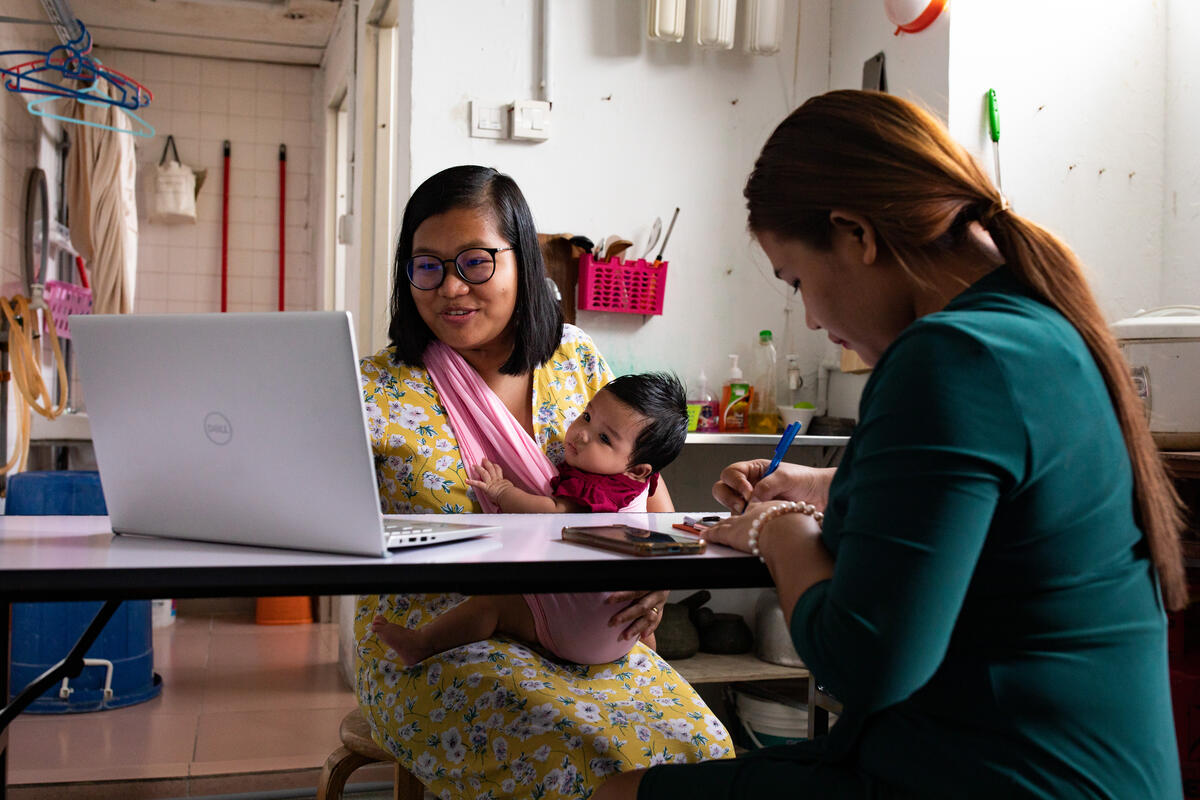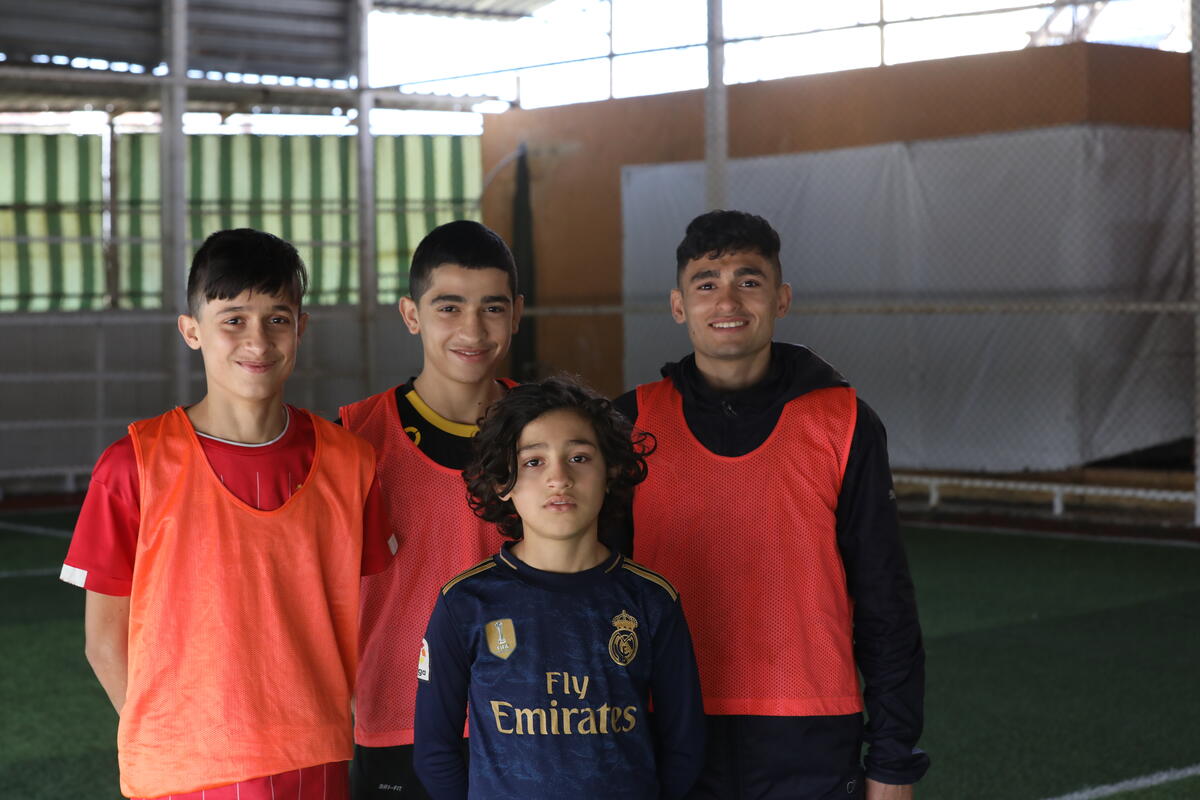Trailblazing health scheme benefits refugees in Iran

Trailblazing health scheme benefits refugees in Iran
Construction worker Najaf Ali Akhoondi feared the worst when his 16-year-old daughter Morsal was diagnosed with a serious kidney condition. The Afghan refugee family, who live in the Tehran suburbs, knew treatment would be expensive and his meagre earnings could not cover the costs.
The doctor who examined Morsal said she had been born with only one kidney and it had stopped functioning because of a severe infection. She needed three sessions of dialysis a week and the family could only afford two.
“I was losing my young daughter,” Najaf Ali said. “She was suffering in front of my eyes.”
He contacted the Tehran field office of UNHCR, the UN Refugee Agency, to request assistance with his daughter’s medical expenses, and the family was enrolled in a groundbreaking medical insurance scheme launched by the Iranian government in 2015.
“She feels better, so we all feel better.”
Morsal was able to have dialysis three time a week in a medical facility close to her home. “She feels better … so … we all feel better,” says her father.
The Universal Public Health Insurance (UPHI) programme enables Afghan and Iraqi refugees in Iran to benefit from health insurance similar to that enjoyed by Iranian nationals, including hospital treatment, out-patient care such as x-rays, and medication costs.
Supported by UNHCR, the initiative is administered through an agreement between UNHCR, the Bureau for Aliens and Foreign Immigrants Affairs of the interior ministry, the ministry of health and the Iran Health Insurance Organisation.
The programme is the outcome of a long-standing partnership between UNHCR and the Iranian government to complement government efforts to provide refugees with affordable health care.
The scheme is funded by several donors including the European Union’s Directorate-General for European Civil Protection and Humanitarian Aid Operations, known by the acronym ECHO.
All registered refugees in Iran can enrol in UPHI at local government offices known as Pishkhan Centres, where they will receive an insurance booklet which serves as a pass giving access to an extensive network of government hospitals and public clinics and permits them to receive medical care at an affordable cost.
Support from UNHCR complements the government’s contribution and in 2017 covered the cost of premiums for 110,000 of the most vulnerable refugees and members of their families, including those with serious ailments such as haemophilia and kidney disease.
“This initiative by the government of Iran is certainly exemplary.”
All other refugees may also enrol in the insurance scheme by paying the premiums themselves.
UNHCR’s officer-in-charge in Iran, Iryna Korenyak, applauded the Iranian government for assisting almost 1 million refugees living in Iran. “This initiative by the government of Iran is certainly exemplary, particularly as it has resulted in the inclusion of the refugees in its national health system,” she said.
The Islamic Republic is one of the few countries in the world to provide such a service. UPHI was first applied to all Iranians in 2014, then a year later Iran set a global precedent by offering health insurance to all refugees, who have benefited continuously from the scheme for the past four years.
This example of the inclusion of refugees in national health services, rather than keep treating them in a parallel service, is the kind of practice UNHCR wants to see applied in all refugee situations globally.
Such an approach is an integral part of the new approach set out in the 2016 New York Declaration for Refugees and Migrants by the UN General Assembly, which will form the basis of a new global compact on refugees. The compact also aims to ensure that host countries with progressive policies like Iran are better supported by the international community.












